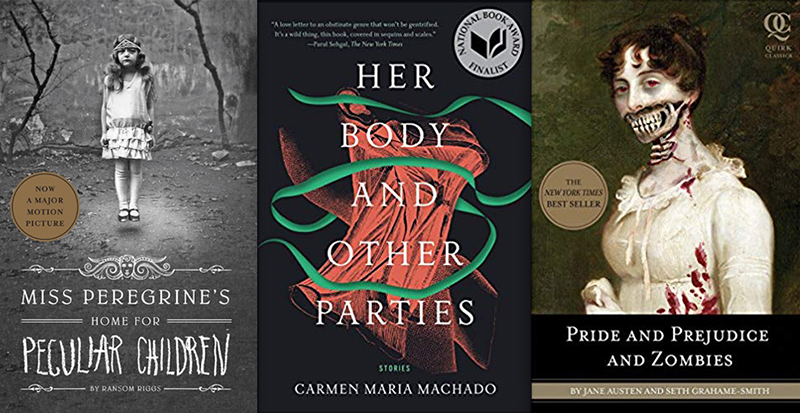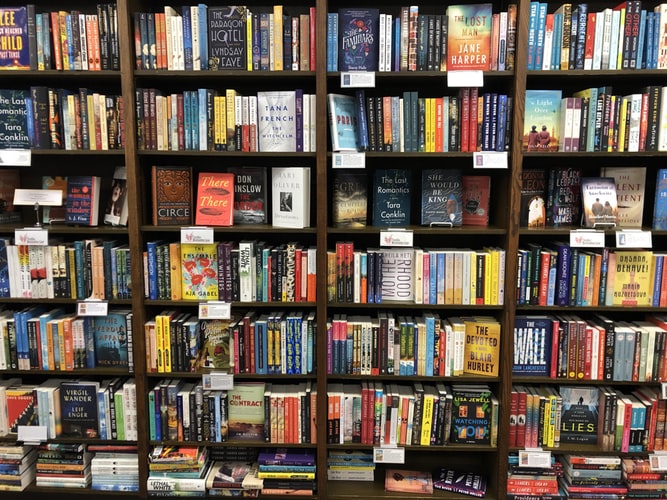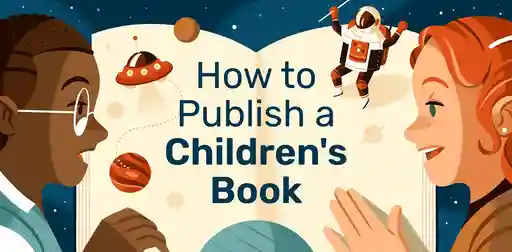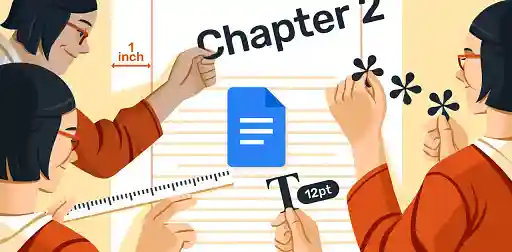Blog • Understanding Publishing
Last updated on Jun 27, 2024
What is a Small Press? (And Should Authors Use Them?)
About the author
Reedsy's editorial team is a diverse group of industry experts devoted to helping authors write and publish beautiful books.
More about the Reedsy Editorial Team →Martin Cavannagh
Head of Content at Reedsy, Martin has spent over eight years helping writers turn their ambitions into reality. As a voice in the indie publishing space, he has written for a number of outlets and spoken at conferences, including the 2024 Writers Summit at the London Book Fair.
View profile →If you're a writer, chances are you've dreamed of inking a book deal with one of the Big 5 presses. But the world of publishing extends way beyond the big, billion-dollar publishing houses. In fact, you'll find many a small press in the industry, all operating outside the orbits of Penguin Random House and HarperCollins.
Small presses pull far less than ten figures a year. But they maintain strong brand identities with their highly curated lists, winning devotion from authors and readers alike. Most of their output consists of indie critical darlings — the kind of sophisticated, imaginative books that other writers adore, even if they're unlikely to show up in an airport bookshop.
Still, small press releases aren't always hipster diamonds in the rough. These scrappy publishers have also brought us some hyped-up, movie-making, New York Times bestselling hits over the years. Remember Pride and Prejudice and Zombies, the cheeky Regency romance meets B-movie horror mashup that turned into a Lily James flick? That was a small press book. So was Carmen Maria Machado's dazzling short story collection, Her Body and Other Parties, one of the most talked-about titles of 2017. There's also Ransom Riggs's wonderfully eccentric debut, Miss Peregrine's Home for Peculiar Children — aimed at teenage readers, it spent 45 weeks on the NYT bestsellers list and spawned a punchy Tim Burton adaptation.

Now that you know what small presses can do, let's get into exactly what a small press is —and what you can expect if you ink a book deal with one. Then, we’ll review the pros and cons of working with one instead of a big publishing house.
What is a small press?
A small press is a publisher making less than $50 million annually. That might sound like a lot. But compared to the $3.3 billion reeled in by Penguin Random House every year, it’s hardly even on the same scale.
Some industry experts also recognize a distinction between small presses and micro-presses, which put out very few books a year, at minuscule print runs — say, 20 copies of a single chapbook.
Don’t get small presses confused with the often genre-specific imprints operated by big publishing conglomerates — say, HarperCollins’s Harlequin, which publishes romance, or MacMillan’s sci-fi-focused Tor Books. Each of these is, essentially, a brand within a brand, the same way Audible falls under Amazon’s umbrella.
Some imprints may operate with a fair bit of autonomy, assembling their lists with minimal oversight from their parent companies. But because they’re still owned by larger corporations, they don’t count as small presses in their own right. Furthermore, a small press might be bought out by publishing juggernauts, becoming an imprint while hanging on to its name and hard-won brand identity. The opposite also happens on occasion: an imprint might spin off, becoming a small press.
What is Small Press Distribution?
If you're curious about small press publishing, you've probably at least heard of Small Press Distribution, or SPD. This Berkeley-based nonprofit, now into its fifth decade of operation, does a lot when it comes to getting small press titles onto readers' bookshelves. As an umbrella distributor, they lighten the load for publishing houses that don't have the resources to pitch their own books directly to retailers. By taking on the work of distributing and marketing the books, SPD allows the presses it works with to spend more time and money on publishing them.

Though the majority of their stock goes to wholesalers, Small Press Distribution also sells to libraries, college bookstores, and even directly to consumers. Today, they handle distribution for over 400 publishers from all over North American — a huge step up from the five local presses they started with in 1969.
Free course: Self-Publishing 101
Join the self-publishing revolution and become an indie bestseller with this 10-day online course. Get started now.
What are the pros and cons of working with a small press?
Small presses operate on a minute scale compared to the billion-dollar publishing juggernauts. But much like HarperCollins or Hachette, every small press will buy manuscripts, shepherd them through the editing, production, and distribution process, and pay out royalties to the authors (sometimes in addition to a very modest advance — more on that below). The scope of the operation is where the difference comes in. But does that difference play out in their authors’ favor, or against them?
The answer, of course, is that it all depends on what you want out of a publishing experience. There are both pros and cons to working with small publishers instead of publishing giants. Let’s go over both, so you can shop your book project to the best fit possible.

Want to boost your chances of selling your manuscript?
Get one of the industry's best editors to help you perfect it!
Learn how Reedsy can help you craft a beautiful book.
The pros of working with a small press
1. They’re more willing to take a chance on unagented authors.
If you’re looking to get traditionally published, you might assume that your first order of business (after learning how to write a book, of course) is getting some professional representation. Indeed, the big publishing houses often won’t even look at your manuscript if it hasn’t passed through an agent’s hands.
Small presses, however, often consider unsolicited submissions — in many cases, through competitions they run specifically to scout out promising new voices. If you go this route, you won’t have to worry about scoring representation just to see your name in print. Instead, you can cut out the middleman, study the press’s submission guidelines, and let your manuscript (or proposal) speak for itself.
2. They’ll take a look at risky and experimental books
Small presses' willingness to look at unagented manuscripts is part and parcel of their greater appetite for risks. Just think: the Big 5 and their ilk are unabashedly commercial enterprises. Their unwavering attention to the bottom line can result in some enduring and thought-provoking reads. But there’s no denying that they’re more risk-averse than their indie counterparts.
The big publishers operate with commercial viability as their polestar — one reason they require an agent to vouch for every manuscript they’re considering. Small presses, on the other hand, are willing to take on riskier prospects, whether that’s a memoir by a first-time author with zero name recognition, a quirky literary experiment that straddles the line between genres, or an esoteric book of sonnets that muses on the nature of identity. Some small presses even cultivate their brands around their dedication to the weird, the uncategorizable, and the avant-garde — work that more mainstream presses won’t even touch.
3. You’ll have more input throughout the process
Strong-minded writers, rejoice! Working with a small press instead of a major conglomerate means you’re much more likely to have a voice throughout the process, from the image on the front cover to the blurb on the back. You’ll also have more freedom to engage in a back-and-forth with your editor over changes to your manuscript.
Overall, going through a small press feels less like you’ve got a team working on your book and more like you’re part of a team, working on a project together. That doesn’t mean you’ll get the final say on how your book looks, but it does mean you won’t feel steamrolled.
The cons of working with a small press
1. Your advance will be tiny (or nonexistent)
Publishing has no shortage of Cinderella stories: you’ve probably heard of the fairytale advances. Kristen Roupenian, of viral “Cat Person” fame, netted seven figures for her first short story collection, and Whitney Scharer’s The Age of Light, one of 2019’s hottest books, sold for over a million after a bidding war.
Roupenian’s book came out through Gallery Publishing Group, an imprint of Simon and Schuster. Scharer, meanwhile, was published by Pan Macmillan. In contrast, small publishers just can’t afford to give out seven-figure advances. In fact, you may not receive an advance at all, and if you do get one, it’ll likely be on the order of $1,000-$2,000.
The news isn’t all bad: small presses give out higher royalties to make up for paying you little to none upfront. But this arrangement makes it impossible to live off a generous advance and devote all your time to writing the next book. Put it this way: you’ll definitely have to hang onto your day job.
2. They won’t have a lot of marketing firepower
These days, even Big 5 authors have to shoulder a lot of the promotional work themselves. Unless you’re JK Rowling or Stephen King, your marketing and PR team probably won’t be sending you on any cross-country book tours. That goes doubly if you’re working with small press: you might not get a marketing and PR team at all.
Small publishers often don’t have the budget to promote their books very aggressively, so it’ll fall on you to cultivate a platform and get your name out there. You can likely expect some guidance on where to start, but you’ll still have to brush up on book marketing tactics and start serving as your own staunchest advocate.
3. They’re harder to vet
As with all indie businesses, small publishers are a little harder to vet than their mega-corporate counterparts. Even the most casual of readers will have bought a Penguin Classic for their freshman English class, or flipped through a Random House blockbuster in an airport bookshop. Ultimately, Penguin Random House is such a towering brand, it will have cast a shadow over their awareness somehow.
Small presses, on the other hand, don’t have that kind of name recognition. They also vary widely in quality, with some putting out Pulitzer nominees and others pushing scams. To figure out whether any given press is worth working with, you’ll likely have to do a bit of research.
Fortunately, you can start with our curated roundup of the best independent publishers — and the books that helped build their reputations.
Have you considered publishing with a small press? Which ones do you have your eye on? Let us know in the comments below!





